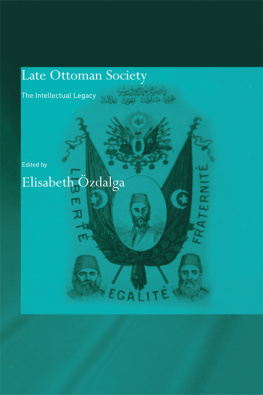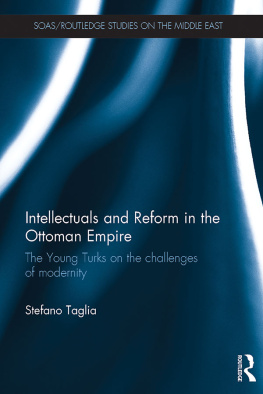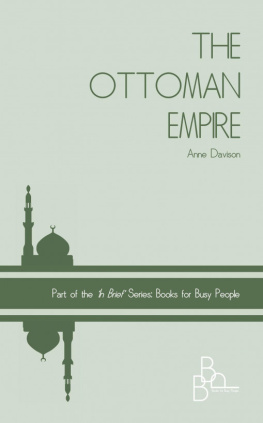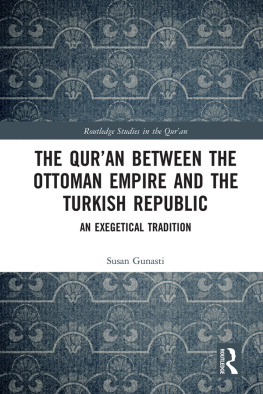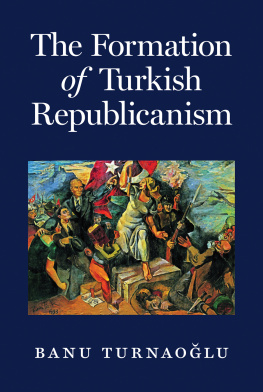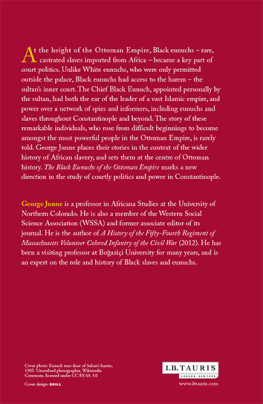
Late Ottoman Society
This volume brings together a fascinating set of essays dealing with intellectual developments in late Ottoman society. Under the impact of European expansionism and modernization the Ottoman Empire underwent profound transformations. Important features were the development of a market economy and modern political and administrative structures; the splitting up of the empire into separate nation-states; and the coming into being of a professional middle class and various groups of modern intellectuals.
Addressing a rapidly modernizing period in late Ottoman history, which so far has been under-explored, this book considers the relative diversity of intellectual streams of thought of the decades preceding the 1908 Young Turk revolution. Through the chapters the reader will make the acquaintance of the following:
outstanding personalities such as the Ottoman historian, Ahmed Cevdet, the radical atheist, Abdullah Cevdet, and the nationalist/socialist, Ziya Gkalp;
intellectual movements like the Westerners (Garplar), part of the larger Young Turk opposition;
ideologies like pan-Islamism, constitutionalism and liberalism;
religious institutions like the state mufti;
educational institutions like the Mlkiye (School of Public Administration) and the Christian community schools;
printing and publishing activities, including the womens magazine Hanmlara mahss gazete (the Ladies Own Gazette).
The discussion of the cultural and intellectual legacy of late Ottoman society is not limited to modern Turkey but includes former Ottoman provinces such as Albania and Syria.
Elisabeth zdalga is Professor of Sociology at the Middle East Technical University in Ankara. zdalga, who is also affiliated to Gteborg University in Sweden on a part-time basis has also been the director of the Swedish Research Institute in Istanbul. She is the editor of The Naqshbandis in Western and Central Asia: Change and Continuity (1999) and the author of The Veiling Issue (1998).
SOAS/RoutledgeCurzon Studies on the Middle East
Series Editors
Benjamin C. Fortna,
SOAS, University of London
Ulrike Freitag,
Freie Universitt Berlin, Germany
This series features the latest disciplinary approaches to Middle Eastern Studies. It covers the Social Sciences and the Humanities in both the pre-modern and modern periods of the region. While primarily interested in publishing single-authored studies, the series is also open to edited volumes on innovative topics, as well as textbooks and reference works.
1. Islamic Nationhood and Colonial Indonesia
The Umma below the Winds
Michael Francis Laffan
2. Russian-Muslim Confrontation in the Caucasus
Alternative Visions of the Conflict between Imam Shamil and the Russians, 18301859
Thomas Sanders, Ernest Tucker and G.M. Hamburg
3. Late Ottoman Society
The Intellectual Legacy
Edited by Elisabeth zdalga
Late Ottoman Society
The Intellectual Legacy
Edited by Elisabeth zdalga

First published 2005
by RoutledgeCurzon
2 Park Square, Milton Park, Abingdon, Oxfordshire, OX14 4RN
Simultaneously published in the USA and Canada
by RoutledgeCurzon
270 Madison Avenue, New York, NY 10016
RoutledgeCurzon is an imprint of the Taylor & Francis Group
Transferred to Digital Printing 2005
2005 Editorial matter and selection, Elisabeth zdalga; individual chapters, the contributors
Typeset in Times by
Taylor and Francis Books
All rights reserved. No part of this book may be reprinted or reproduced or utilised in any form or by any electronic, mechanical, or other means, now known or hereafter invented, including photocopying and recording, or in any information storage or retrieval system, without permission in writing from the publishers.
British Library Cataloguing in Publication Data
A catalogue record for this book is available from the British Library
Library of Congress Cataloging in Publication Data
A catalog record for this title has been requested
ISBN 0415341647
Contents
Ktp ve Resail-i Mevkute: printing and publishing in a multi-ethnic society
Illustrations
.
.
.
.
.
.
.
.
.
.
.
.
.
.
.
.
.
.
.
.
.
.
.
Contributors
Nathalie Clayer,Directrice de recherche at the CNRS, in Paris, is a specialist in Islam and cultural identity in the Balkans. Her recent publications include: Le nouvel islam balkanique (Paris, 2001, edited together with Xavier Bougarel); and Religion et nation chez les Albanais, XIXeXXe sicles (Istanbul, 2003). She is currently working on a book on Albanian national identity at the end of the Ottoman period.
Elizabeth B. Frierson is Associate Professor of Middle East and North African Studies at the University of Cincinnati. She has published several articles on Hamidian women, the press, and censorship, including the mer Ltfi Barkan prize-winning article, Unimagined communities: educational reform and civic identity among late-Ottoman women, Critical Matrix 9:2, Fall 1995.
M. kr Haniolu is a Professor in the Department of Near Eastern Studies at Princeton University, NJ, USA, and author of The Young Turks in Opposition (New York: Oxford University Press, 1995) and Preparation for a Revolution: The Young Turks, 1902-1908 (New York: Oxford University Press, 2001).
smail Kara is Associate Professor of History of Turkish-Islamic Thought at the Faculty of Theology, Marmara University, Istanbul. He is a specialist in the history of ideas of late Ottoman and modern Turkish society. Among his main publications are: Trkiyede slmclk Dncesi: Metinler/Kiiler (Islamist Thought in Turkey: Texts and Personalities), 3 vols (Istanbul 1986, 1987, 1994); slmcilarn Siyas Grleri: Hilafet ve Merutiyet (Islamist Political Thought: Caliphate and Constitutionalism) (Istanbul: Dergh Yaynlar, 2001); and Din ile Modernleme Arasnda agda Trk Dncesinin Meseleleri (The Problem of Modern Turkish Thought in between Religion and Modernity) (Istanbul: Dergh Yaynlar, 2003).
Adeeb Khalid is Associate Professor and Chair of the Department of History at Carleton College in Northfield, Minnesota, USA. He is the author of The Politics of Muslim Cultural Reform: Jadidism in Central Asia (University of California Press, 1998), and is currently working on a book on Islam in contemporary Central Asia.
Christoph K. Neumann is an Assistant Professor of History, at Istanbul Bilgi University. He lectures on the intellectual, cultural and social history of the Ottoman Empire, predominantly in the eighteenth and nineteenth centuries. His recent publications include Kleine Geschichte der Trkei, together with Klaus Kreiser (Stuttgart: Philipp Reclam, 2003) and The Illuminated Table, the Prosperous House: Food and Shelter in Ottoman Material Culture edited together with Suraiya Faroqhi (Wrzburg: Orient-Institut der DMG Ergon/Verlag in commission, 2003).
Elisabeth zdalga, Professor of Sociology at the Middle East Technical University, Ankara, was the Director of the Swedish Research Institute in Istanbul, m 19992002. Her research concerns social and political movements in Turkey and the wider Near East and Central Asia. She is the author of
Next page
